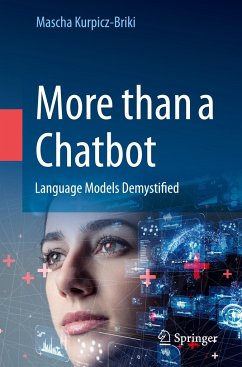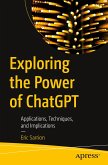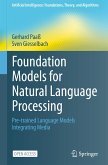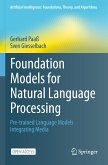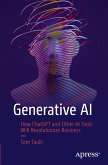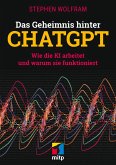Recent technological advances have resulted in a new generation of powerful text processing and generation tools, that produce text very similar to what a human could do. Such tools have the potential to change the way we work, learn and teach - and this book enables you to understand and be part of this exciting development.
Did you wonder how tools like ChatGPT or Bard work, but do not have a technical background? Then this is the right book for you! To discuss and better understand what such technologies are capable of and how this will impact our lives and our society, a basic background knowledge about text processing and generation technologies is required. In particular, the book discusses the following questions: How did the field of automated text processing and generation evolve over the last years, and what happened to allow the incredible recent advances? Are chatbots such as ChatGPT or Bard truly understanding humans? What pitfalls exist and how are stereotypesof the society reflected in such models? What is the potential of such technology, and how will the digital society of the future look like in terms of human-chatbot-collaboration?
The book is aimed for a general audience, briefly explaining mathematical or technical background when necessary. After having read this book, you will be confident to participate in public discussions about how this new generation of language models will impact society. You will be aware of the risks and pitfalls these technologies can bring along, and how to deal responsibly when making use of tools built from AI technology in general.
Did you wonder how tools like ChatGPT or Bard work, but do not have a technical background? Then this is the right book for you! To discuss and better understand what such technologies are capable of and how this will impact our lives and our society, a basic background knowledge about text processing and generation technologies is required. In particular, the book discusses the following questions: How did the field of automated text processing and generation evolve over the last years, and what happened to allow the incredible recent advances? Are chatbots such as ChatGPT or Bard truly understanding humans? What pitfalls exist and how are stereotypesof the society reflected in such models? What is the potential of such technology, and how will the digital society of the future look like in terms of human-chatbot-collaboration?
The book is aimed for a general audience, briefly explaining mathematical or technical background when necessary. After having read this book, you will be confident to participate in public discussions about how this new generation of language models will impact society. You will be aware of the risks and pitfalls these technologies can bring along, and how to deal responsibly when making use of tools built from AI technology in general.
"Mascha Kurpicz-Briki's book takes readers under the hood of today's chatbots by explaining how LLMs work and looks through the hype. ... Her guide to how LLMs work steps through all of the need-to-know concepts underpinning natural language processing. And by the end of the journey, readers will have a clear understanding of what it takes for computers to process written text." (James Tyrrell, T_HQ technology and business, techhq.com, December 20, 2023)

